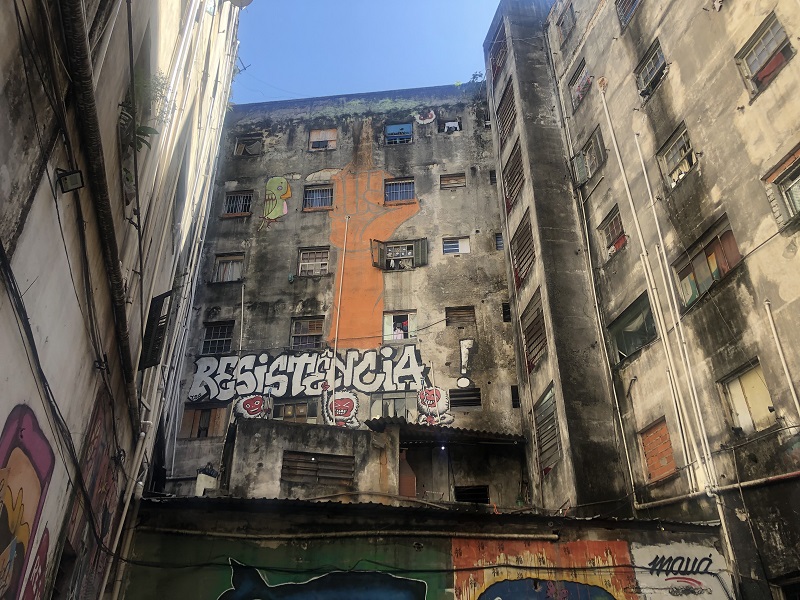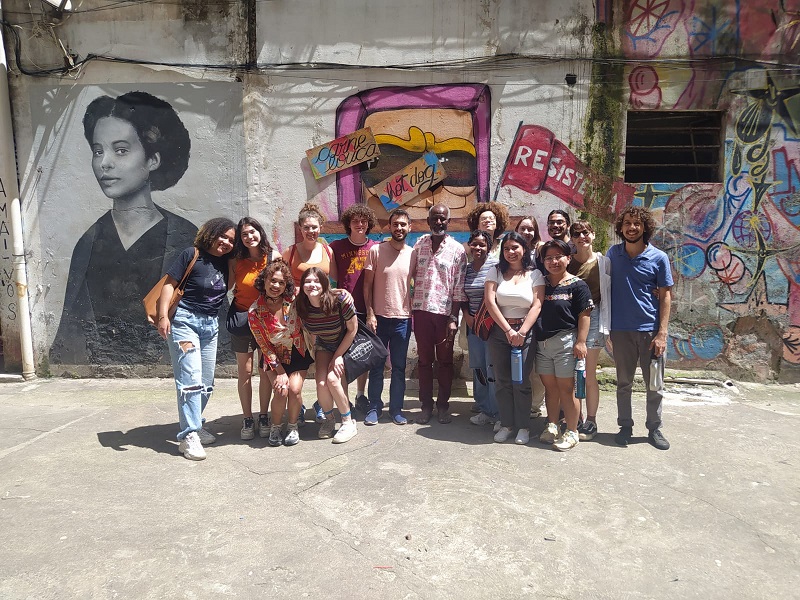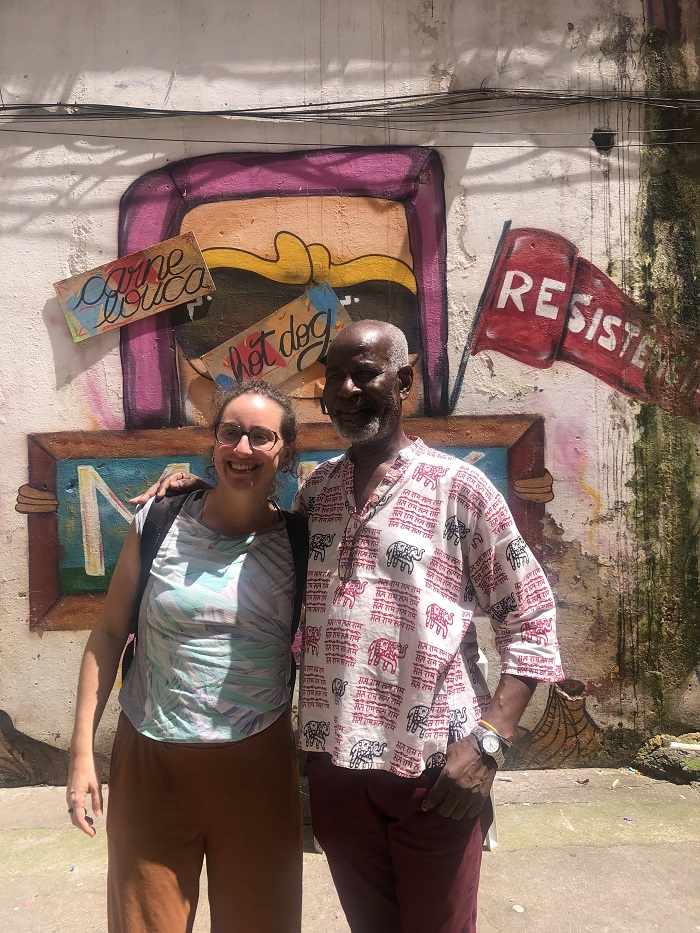Written by Angel Akinleye (Howard University), Student Correspondent for CET Brazil, Spring 2023
You can hear a faint ring in the distance
Voices rise… hands clasp… pupils raise to the sky
An echo of determination
A will that will not be denied
Change that will be made
Roots of hope branches of life
Each hand plants the soil a tree of beautiful souls
Their home is the bell that rings resistance

Ocupa Mauá (Occupation Mauá)
The foundational course of CET Brazil is Social Justice and Inequality in 21st Century Brazil. Our class is taught by Professor Stella Paterniani. Each week we study social moments within Brazil. So far, we have covered coloniality, modernity, the struggle for land, and urban segregation, including gentrification and hygienisation.
Most recently, we have been discussing the housing movement in Brazil. Our first field activity of the class was this week at Occupation Mauá. Occupation Mauá is a community of people protesting their housing rights by occupying a once-abandoned building. In Brazil, the social function of property law within the constitution states that urban land must have a social use. Mauá has been occupied for 16 years, one of the longest occupations in the São Paulo region. Mauá is in the central region of São Paulo. Around 237 low-income families live in Mauá.
The assistant director of CET Brazil, Leandro Tardin, accompanied us to the field activity, and he stated, “You fight in community even if the final results may be for the individual, the right to have your place and make it a home, you help others in the direction of the same goal. It’s different from the most individualistic perspective in pursuit of the goal of owning a home in Brazil.”

CET students with professor Stella Paterniani and housing movement leader Nelson da Cruz E Souza
While at Mauá we had a discussion in Portuguese with Nelson da Cruz E Souza, a leader within the occupation and housing movement. Nelson spoke of the importance of community; he knows everyone and greets them with a friendly smile. In his life journey, Nelson has lived in various occupations; he emphasized the dedication and hard work of community organizing. Before anyone can live at Occupation Mauá, they must attend meetings and once accepted, people are required to have monthly community meetings. Within these gatherings formaçáo is taught, which is a political education aimed to provide tools to continue social movements. The people support one another, creating a caring atmosphere. Occupation Mauá is revolutionizing how we conceptualize the relationship between living and housing.

Professor Stella Paterniani and housing movement leader Nelson da Cruz E Souza